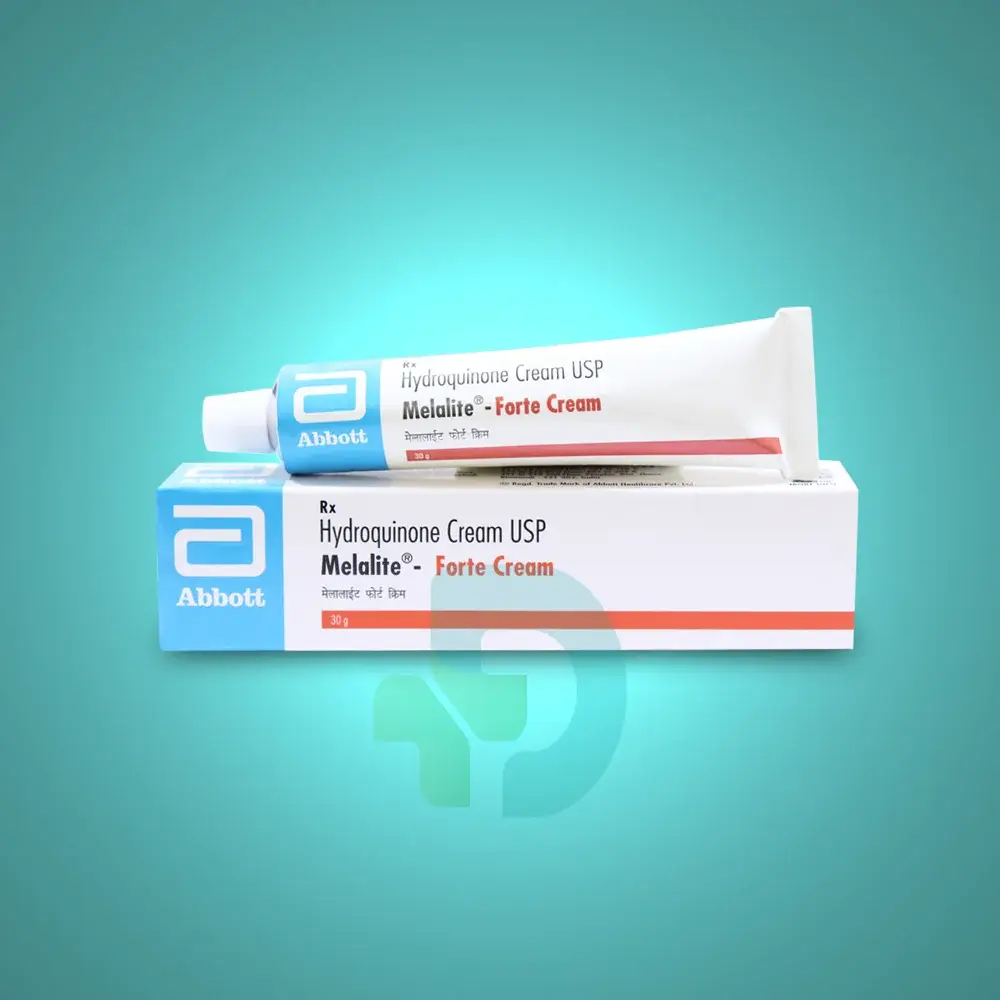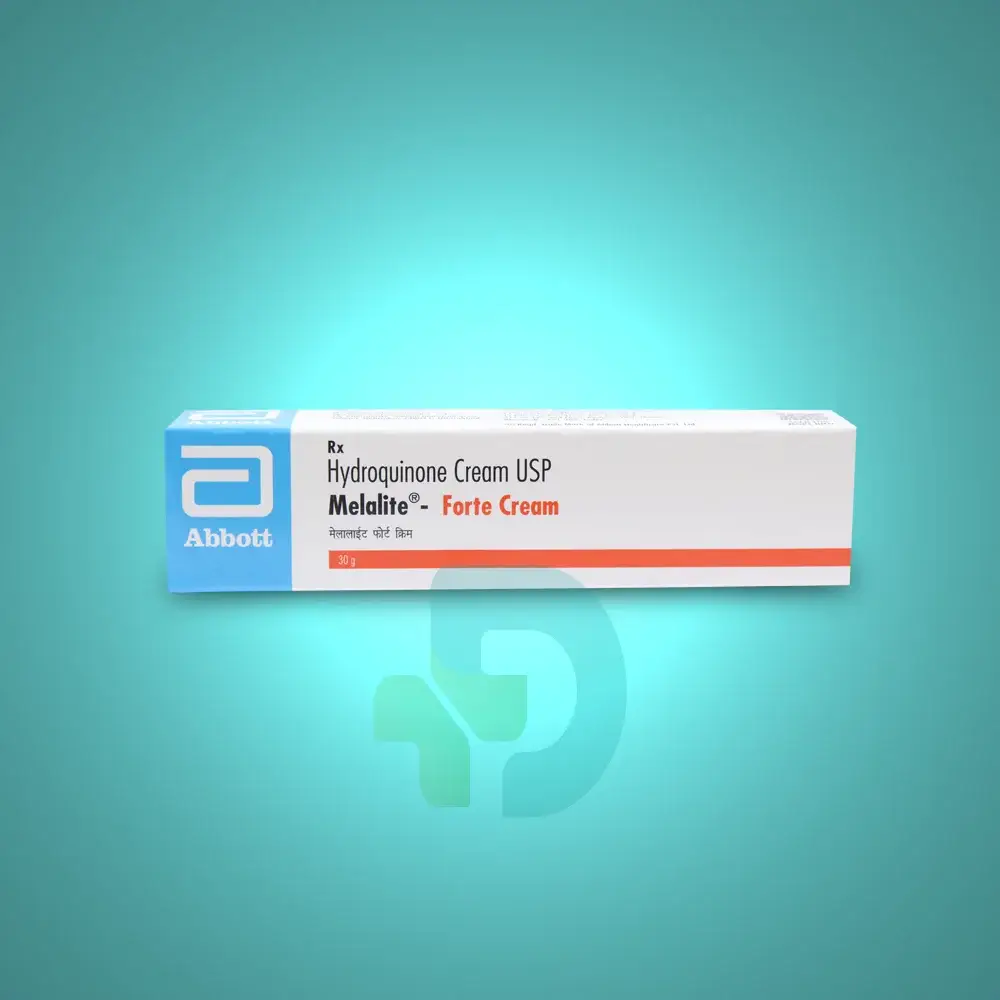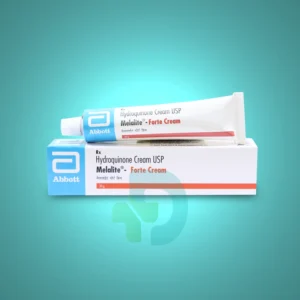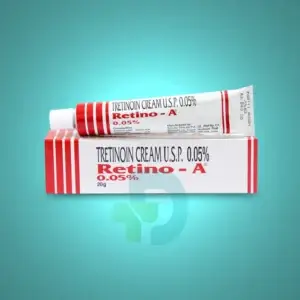Hydroquinone Cream: A Guide to Effective Skin Lightening
Hydroquinone is a skin-lightening agent used topically for the treatment of hyperpigmentation or dark spots on the skin. Hydroquinone works by inhibiting the oxidation of the epidermal melanin and as such reduces the formation of melanin. It does this by inhibiting tyrosine. In effect, it is similar to treating melasma through chemical exfoliation.
Hydroquinone has been in use since 1959 with an impressive safety record. The prescribed concentration in different countries is different – 3-4% in Europe and US but between 0.1-2% in Japan and China.
Uses Hydroquinone
As acne improves, apply once a day or every other day. Do not use occlusive dressings unless directed to do so by your doctor.
Use for the full course of treatment. Although acne may begin to clear in a few days, it may take several weeks before improvement is seen. If no improvement is seen after 12 weeks, contact your doctor.
Hydroquinone (HQ) is an ideal wrinkle treatment product for all skin types due to its skin tone lightening effects, but also because it doesn’t cause irritation and has high safety profile.
Hydroquinone's effectiveness in treating dermatological problems

Mechanisms of Hydroquinone
Hydroquinone works by inhibiting tyrosine, an enzyme that is essential for melanin production. Melanin is the skin pigment responsible for a person’s complexion. The use of hydroquinone to lighten the skin appears to be safe, and it helps reduce the appearance of brown spots. However, there are some side effects of hydroquinone use.
How to use hydroquinone
Some patients have dramatic clearing of their melasma as soon as the topical hydroquinone is begun. For others, several months are required to develop sustained improvement. Even so, many patients maintain their improvement after they discontinue the drug for a few weeks. If no benefit is noted within 3 months of treatment, then hydroquinone should be stopped. The patient’s underlying dermatologic condition should also be treated.
Application:
Apply 2% hydroquinone cream on affected areas two times a day, morning and evening.
Daily use on face and torso. Continue treatment for 4 to 6 months. Use only as directed.
Observe the skin reaction; if necessary, discontinue use and consult your physician. Discontinue use if signs of irritation develop, and seek advice from a dermatologist before resuming the treatment.
Discontinue use if signs of irritation develop, and seek advice from a dermatologist before resuming the treatment.
Important
Hydroquinone is available in two concentrations in this cream: 2% and 4%. Hydroquinone works best when paired with good sun protection; therefore it is important not to skip sunscreen when using hydroquinone products. The FDA advises the use of sunscreen for all hydroquinone users (no matter what concentration they are using).
Benefit for Hydroquinone cream
Hydroquinone is a very effective topical hypopigmenting agent for the treatment of postinflammatory or acquired melasma, as well as other types of postinflammatory hyperpigmentation. Melasma remains a challenging disorder to treat that resolves slowly over time. Therefore, it is important to be patient and persistent with hydroquinone therapy, and to monitor patients’ response by using the Melasma Area and Severity Index score to determine treatment success.
Hydroquinone Side Effects
While Hydroquinone can lighten the skin, it can also cause many side effects, including dryness, redness, irritation, and burning. In rare cases, skincare serum can also cause more severe side effects, such as ochronosis (a condition that causes the skin to darken and thicken) and exogenous ochronosis (a condition that causes blue-black patches on the skin). Stop using the product and consult your doctor about these side effects.
(Click Here) For More Detail about the Hydroquinone ( skin Whitening Cream ) Side Effect
Hydroquinone Drug Interactions
It can also interact with other drugs. Most common drug interactions
- Alcohol: Alcohol can cause drying and irritation of the skin, which may worsen the side effects of Hydroquinone. Therefore, when using it, it’s important to avoid using alcohol-based products, such as astringents or toners.
- Antibiotics: It can interact with certain antibiotics, such as tetracycline and doxycycline. This interaction can decrease the effectiveness of the antibiotic. Additionally, Hydroquinone can increase the time it takes for the antibiotic to work.
- Birth control pills: The exact mechanism by which Hydroquinone might interfere with birth control pills is unknown, but it’s possible that it could lower the hormone levels in the pills or change the way they work in the body.
- Retinoids: Retinoids are a group of compounds related to vitamin A and are used in many skincare products for their anti-aging properties. When used together, Hydroquinone and retinoids can cause irritation and redness. In some cases, they may also increase the risk of sun sensitivity.
FAQ About Hydroquinone
How long does it take to see results with hydroquinone?
The time it takes to see results with hydroquinone can vary depending on the individual and the specific condition being treated. Generally, it may take several weeks to months of consistent use to notice significant improvement in skin tone and reduction in hyperpigmentation.
Can it be used in the daytime?
Hydroquinone can be used during the daytime; however, it is essential to protect the treated skin from sun exposure. Hydroquinone can make the skin more sensitive to sunlight, so it is recommended to use sunscreen with a high SPF and wear protective clothing when going outside.
Can hydroquinone be used on sensitive or acne-prone skin?
Hydroquinone can be used on sensitive or acne-prone skin, but it is important to start with a lower concentration and perform a patch test before applying it to larger areas. If you experience any excessive skin irritation or worsening of acne, discontinue use and consult with a healthcare provider.
Can it be used by individuals with a history of skin cancer?
Individuals with a history of skin cancer should use hydroquinone with caution and under the guidance of a healthcare provider. It is important to discuss your medical history and any concerns with your healthcare provider before starting hydroquinone
Can it be used by individuals with dark under-eye circles?
Hydroquinone is not typically recommended for treating dark under-eye circles, as this area of the skin is thin and delicate. It is best to consult with a dermatologist or healthcare provider for appropriate treatment options for dark under-eye circles.











Reviews
There are no reviews yet.